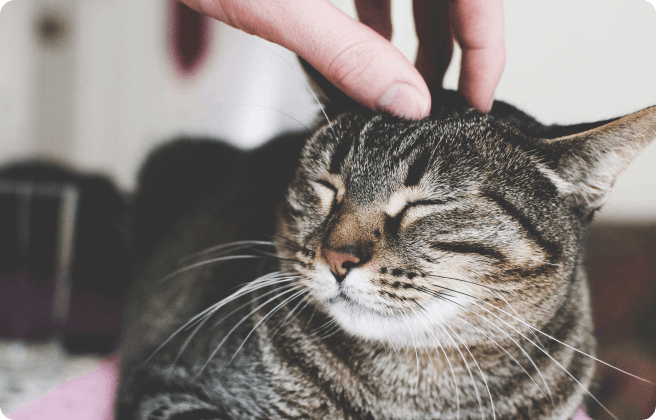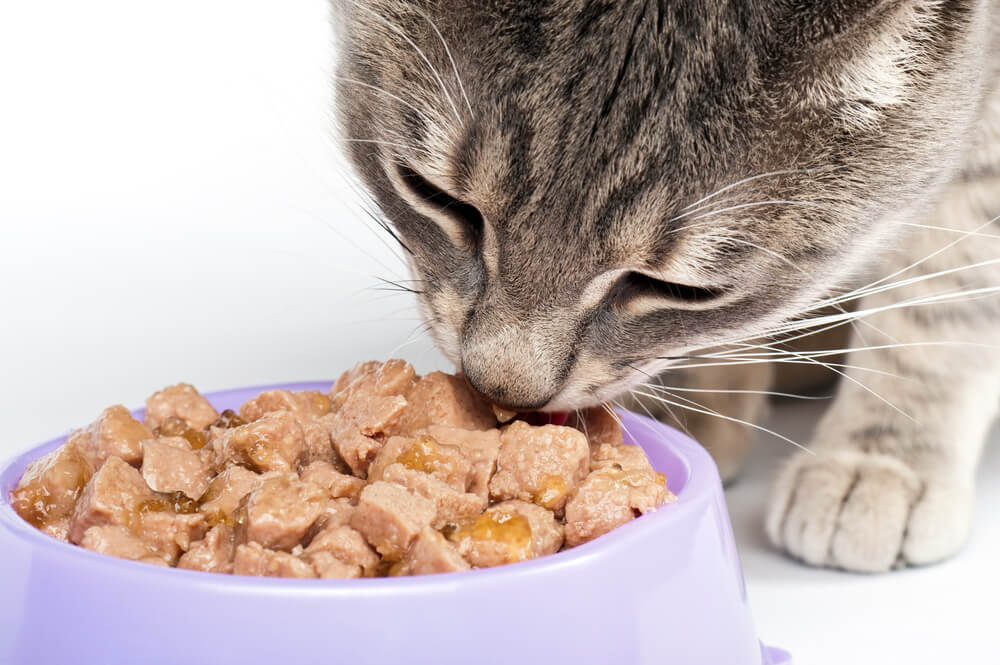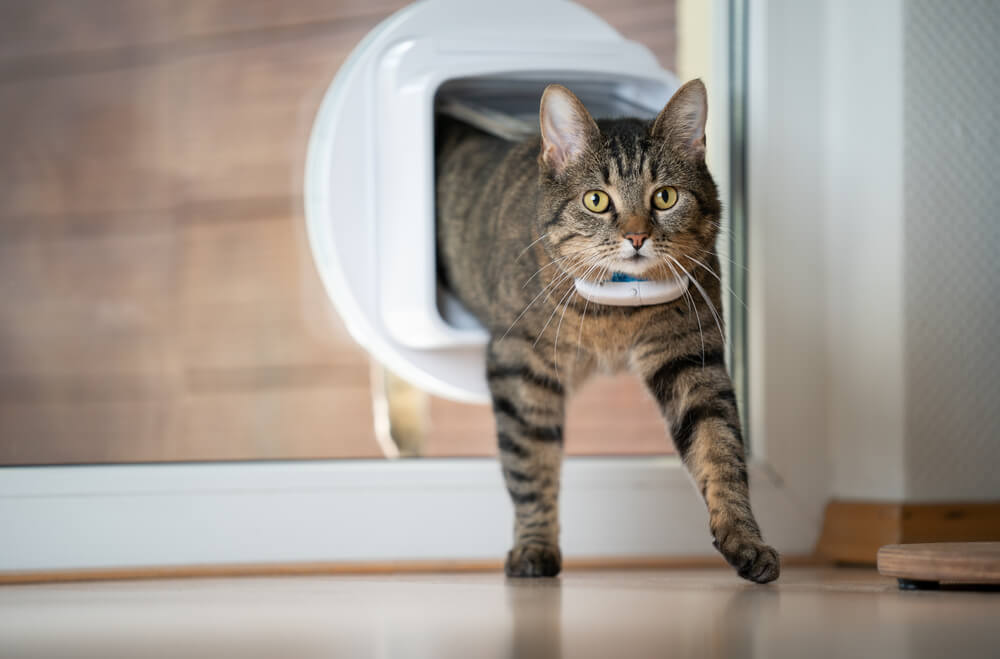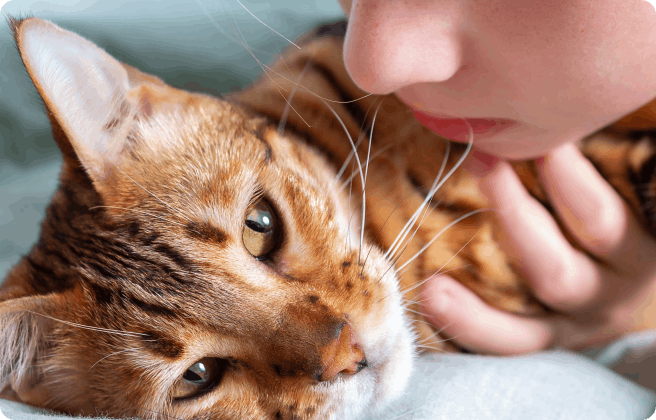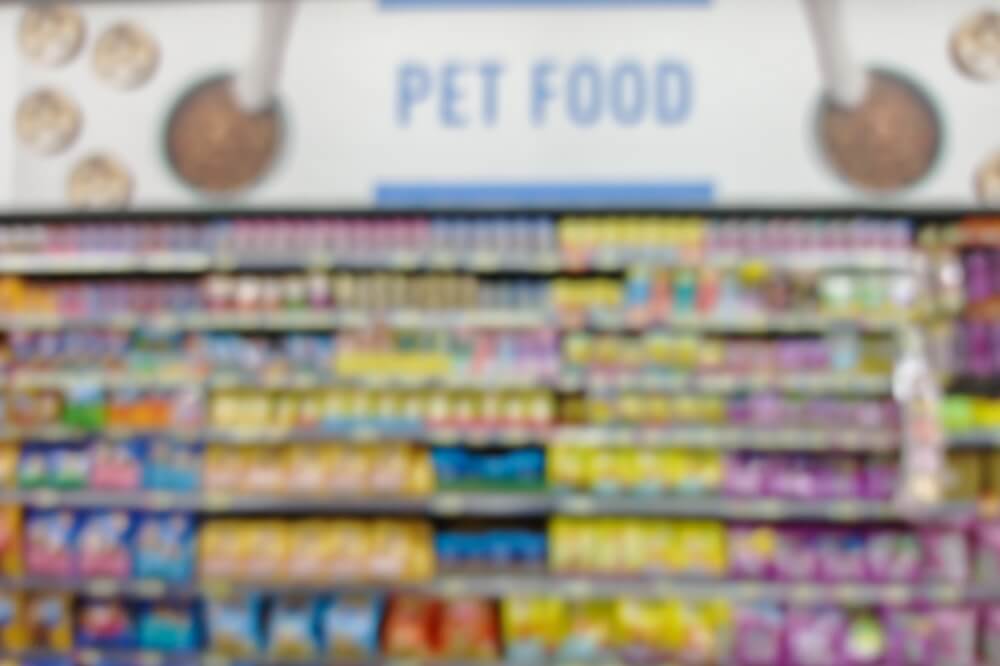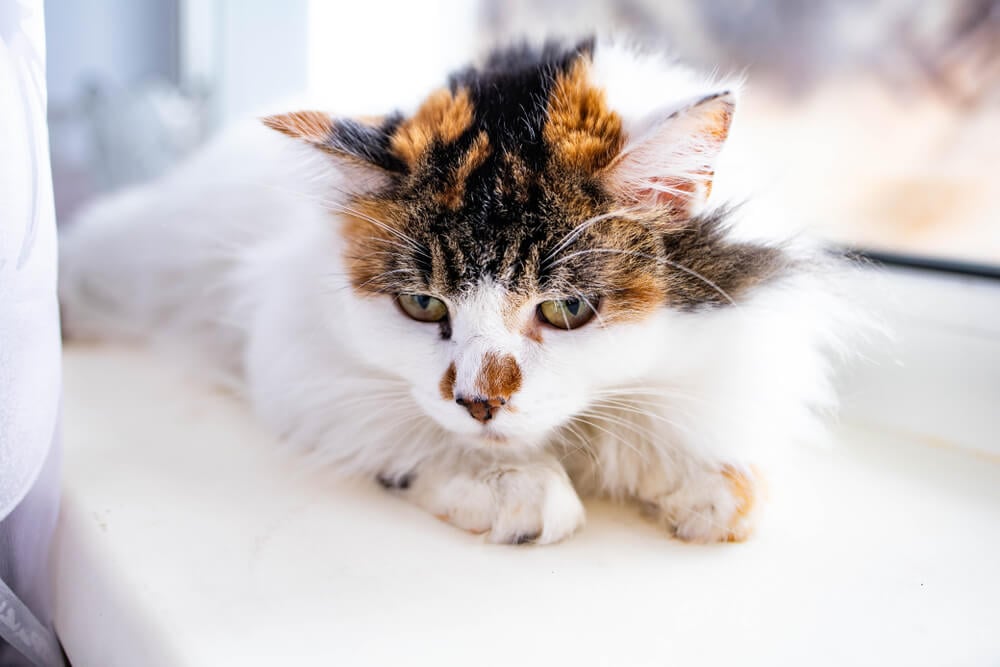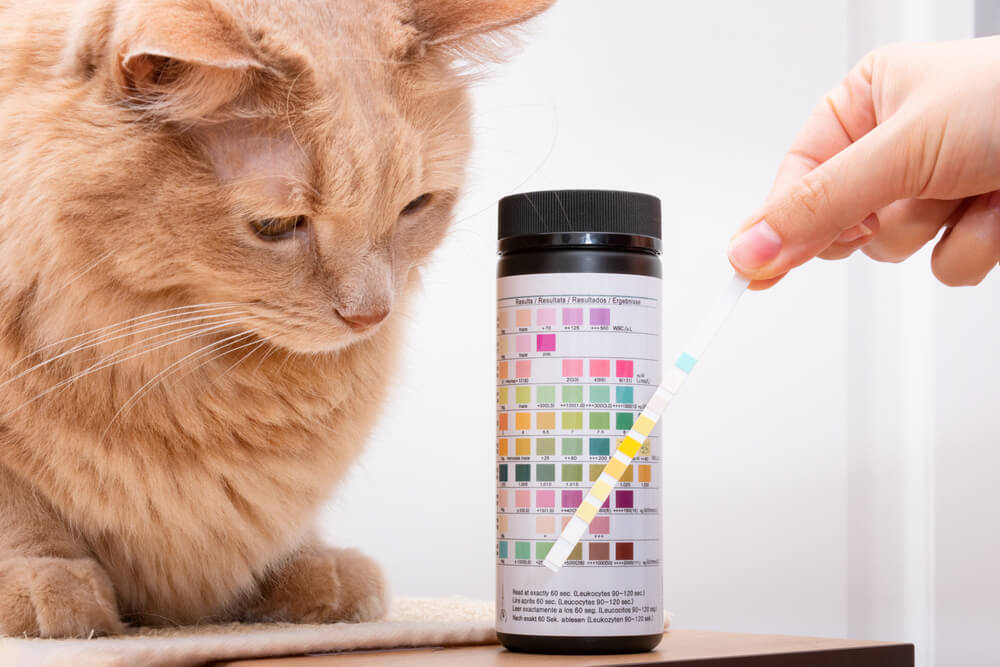
Kidney disease in cats, particularly Chronic Kidney Disease (CKD), poses significant health challenges.
Kidneys play a vital role in filtering toxins from the blood and regulating fluid balance in the body. When kidney function declines, it can lead to a range of health issues and complications.
Kidney failure in cats can stem from various causes, leading to different types of diseases. Typically, these issues fall into two main categories: acute and chronic.
What is kidney disease in cats?
A cat has two kidneys, one on each side of the abdomen, and they play a vital role in the body. Kidneys help manage blood pressure, make hormones, stimulate the bone marrow to make more red blood cells, and remove waste from the blood. 1
A cat’s kidneys can fail for many reasons, and there are different types of diseases associated with kidney failure. These issues often develop into one of two categories: acute or chronic.
Types of kidney disease in cats
Cats can experience different types of kidney disease, with acute and chronic kidney diseases being the most common.
Acute kidney disease
Acute kidney disease usually occurs suddenly, often due to factors like infections, toxins, or injuries. While some cats may recover with prompt treatment, acute kidney disease can be fatal for many.
Chronic Kidney Disease (CKD)
CKD involves a gradual loss of kidney function over time. Various factors such as genetics, age, infections, or underlying medical conditions contribute to its development. As CKD progresses, the kidneys become less effective at filtering waste and regulating essential substances in the body. 2
Signs of kidney disease in cats
Although kidney disease can be terminal, it’s important to catch it early.
Recognizing the symptoms of kidney disease in cats is essential for early intervention and treatment. Some common signs include:
- Dehydration
- Excessive thirst
- Weakness
- Weight loss
- Decreased appetite
- Diarrhea or vomiting (may contain blood)
- Depression
- Bad breath
If you notice any of these symptoms in your cat, it’s crucial to seek veterinary care promptly.
Diagnosis of kidney disease
Veterinarians typically diagnose kidney disease in cats through blood tests and urinalysis. These tests help evaluate kidney function by measuring levels of waste products and other substances in the blood and urine.
Your vet will diagnose your cat and recommend steps for going forward.
Causes of kidney disease in cats
Kidney disease in cats can have various causes, including:
- Sudden kidney injury from a serious infection
- Underlying medical conditions (e.g., urethral obstructions, infections, heart disease)
- Chronic infections or inflammatory conditions
- Tick-borne diseases
- Genetic predisposition
Treatment for kidney disease in cats
Treatment for kidney disease aims to support kidney function, manage symptoms, and slow disease progression. This may involve:
- Fluid therapy to maintain hydration
- Prescription diets low in protein and phosphorus
- Medications to control blood pressure or manage symptoms
- Regular monitoring of kidney function through blood tests and urinalysis
- Environmental modifications to support your cat’s comfort and well-being
- Additionally, providing your cat with a low-stress environment, regular exercise, and plenty of fresh water can help support their overall health.
Preventing kidney disease
While not all cases of kidney disease in cats are preventable, you can take steps to reduce the risk. This includes:
- Minimizing exposure to toxins and hazardous substances
- Providing a balanced diet and maintaining a healthy weight
- Regular veterinary check-ups and screenings for early detection
Can food cause kidney disease in cats?
If your cat has been diagnosed with kidney disease, your vet may recommend a diet change.
Studies suggest that therapeutic diets that are restricted in protein, phosphorus, and sodium content and high in water-soluble vitamins, fiber, and antioxidant concentrations may prolong life and improve quality of life in cats with CKD.
However, many cats will turn up their noses at these diets, so it may be challenging. It is important to make a gradual transition to a therapeutic diet and to consider food temperature, texture, and flavor. Cats with CKD that go without food for relatively short periods of time may develop significant health problems.
What is the life expectancy of a cat with kidney disease?
Like many diseases, it depends on the underlying cause and the stage at which the cat is diagnosed. If detected early and your cat receives appropriate treatment, they will likely live a long, happy life with little pain or discomfort.
However, if your cat is older, has additional health issues or the disease is more severe, it is more complicated. It’s important to keep on top of vet checkups to detect issues as early as possible to avoid an unfortunate outcome.
Overall, kidney disease is a significant health concern for cats, but early detection, appropriate management, and supportive care can help improve their quality of life and longevity. If you suspect your cat may have kidney disease, don’t hesitate to consult your veterinarian for guidance and treatment options.
- https://www.vet.cornell.edu/departments-centers-and-institutes/cornell-feline-health-center/health-information/feline-health-topics/chronic-kidney-disease#:~:text=Chronic%20kidney%20disease%20(CKD)%20is,health%20problems%20for%20a%20cat ↩︎
- https://www.vet.cornell.edu/departments-centers-and-institutes/cornell-feline-health-center/health-information/feline-health-topics/chronic-kidney-disease#:~:text=Chronic%20kidney%20disease%20(CKD)%20is,health%20problems%20for%20a%20cat. ↩︎
We uphold the highest editorial standards when creating the authoritative content pet parents rely on and trust.
Every piece of clinical content on the Cat Food Advisor is reviewed by our certified Veterinary Advisory Board, which consists of licensed veterinarians and medically certified specialists.
Our reviews are completely independent; we are not paid by any pet food company to promote their products favorably. We do not accept money, gifts, samples or other incentives in exchange for special consideration. For more information see our Disclaimer & Disclosure page.




